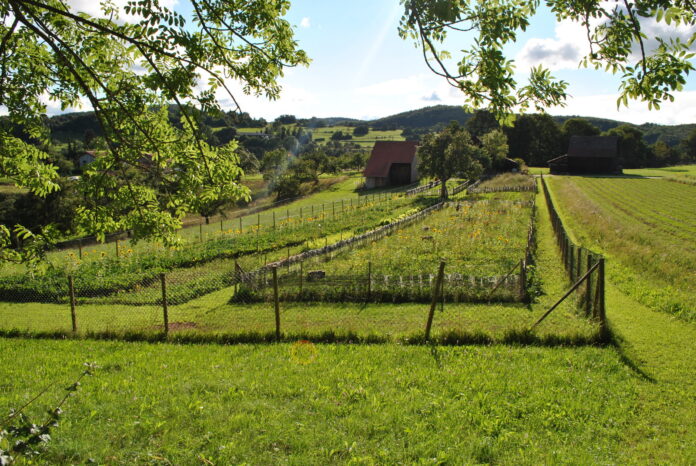The south of Germany is full of flavor. Whether it’s a beer garden, a country pub or a 5-star restaurant; the unsung heroes of the kitchen are often the high-quality products that grow in meadows and fields, on hillsides and in forests. Even outside the traditional landscape of cultivation, the countryside is swarming with produce, and here this naturally-sprouting abundance makes its way into the kitchen. From creepy-crawly superfoods to wonky veg, and garden weeds fit to drink.
The blue gold of the forest: Blueberry delight in Enzklösterle
Blueberries grow widely in Germany, and as a result the German language has a number of names for the popular berry – Heidelbeere, Blaubeere, Moosbeere, Waldbeere… Whereas the commercially cultivated blueberries we see in supermarkets are generally the North American variety, pale on the inside, locally-produced German blueberries are known for leaving a dark blue stain on the fingers, teeth and tongue of whoever eats them. If you take a walk on the hiking trails around Enzklösterle – ‘the blueberry town’ – in the north of the Black Forest, you’ll find them fresh and ready to pick and eat. The idyllic blueberry village of Enzklösterle is located between Pforzheim and Freudenstadt in the Northern Black Forest. Every year in July a ‘blueberry week’ with a dedicated blueberry festival takes place here, in honor of these delicious and nutrient-dense little fruits.
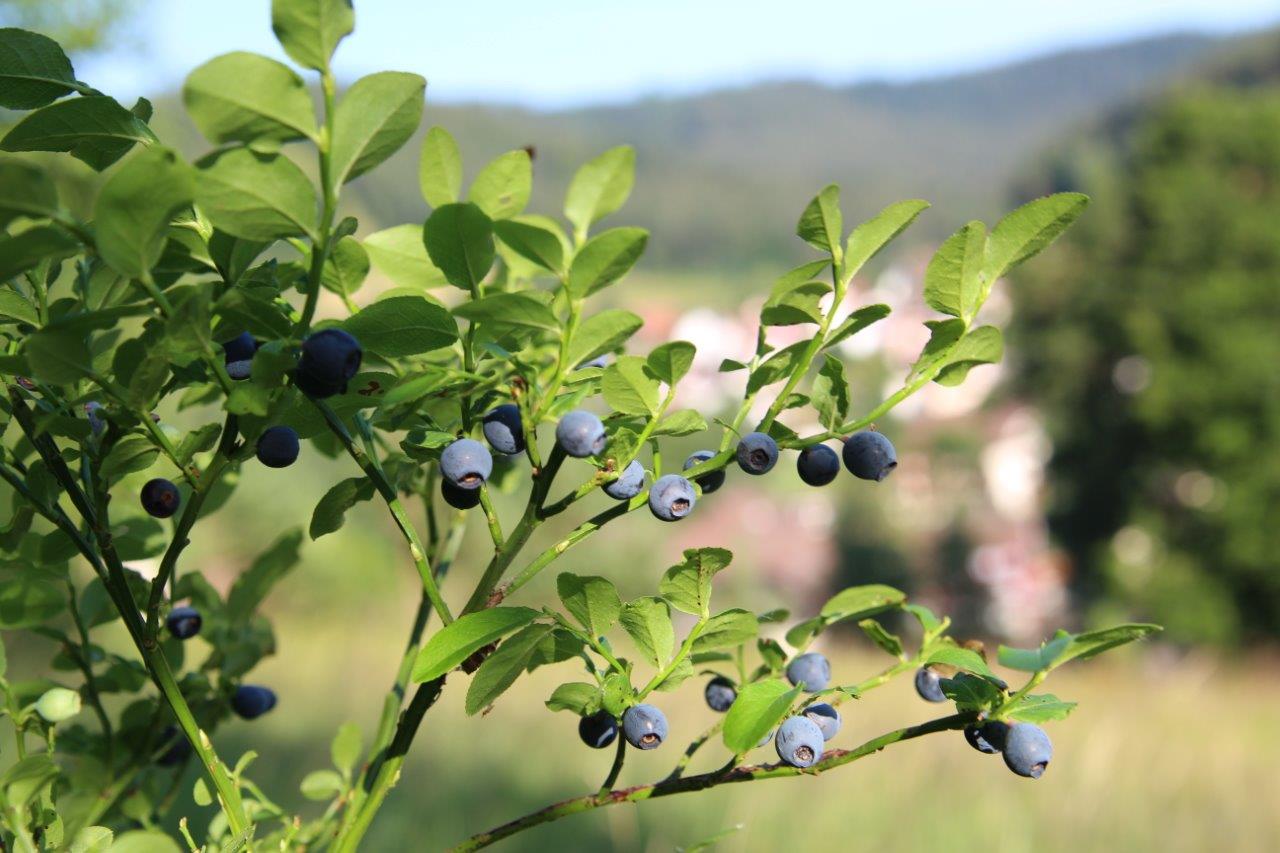
We recommend discovering the “blue gold” of the Black Forest on the approximately 12 km-long blueberry trail taking you into the woods around Enzklösterle. From the Blueberry Swing that you will find there, you will be able to enjoy a breathtaking view over Enzklösterle. The trail continues along the deer park to the Schneckenkopf mountain and, following a small panorama descent, it leads you back to the departure point.
www.enzkloesterle.de
Aromatic greens: wild herbs from Höchsten
A staggering remnant of the Ice Age, the Höchsten mountain towers over the volcanic landscape of the Hegau and offers stunning views over broad valleys, as far as Lake Constance. Because the mountain was not entirely covered by glaciers, a kingdom of plant life was able to survive in its rough, high-altitude climate. Through Moni Müller’s herb tour, participants discover which wild herbs and vegetables are the most delicious and most beneficial to the body. Whichever plants are growing on the side of the trail, they will be freshly picked and tasted. In the sampling break there are tasty foods to be tried, and anyone who is still hungry at the end of the tour can turn to the mountain inn of the herb hotel at Höchsten.
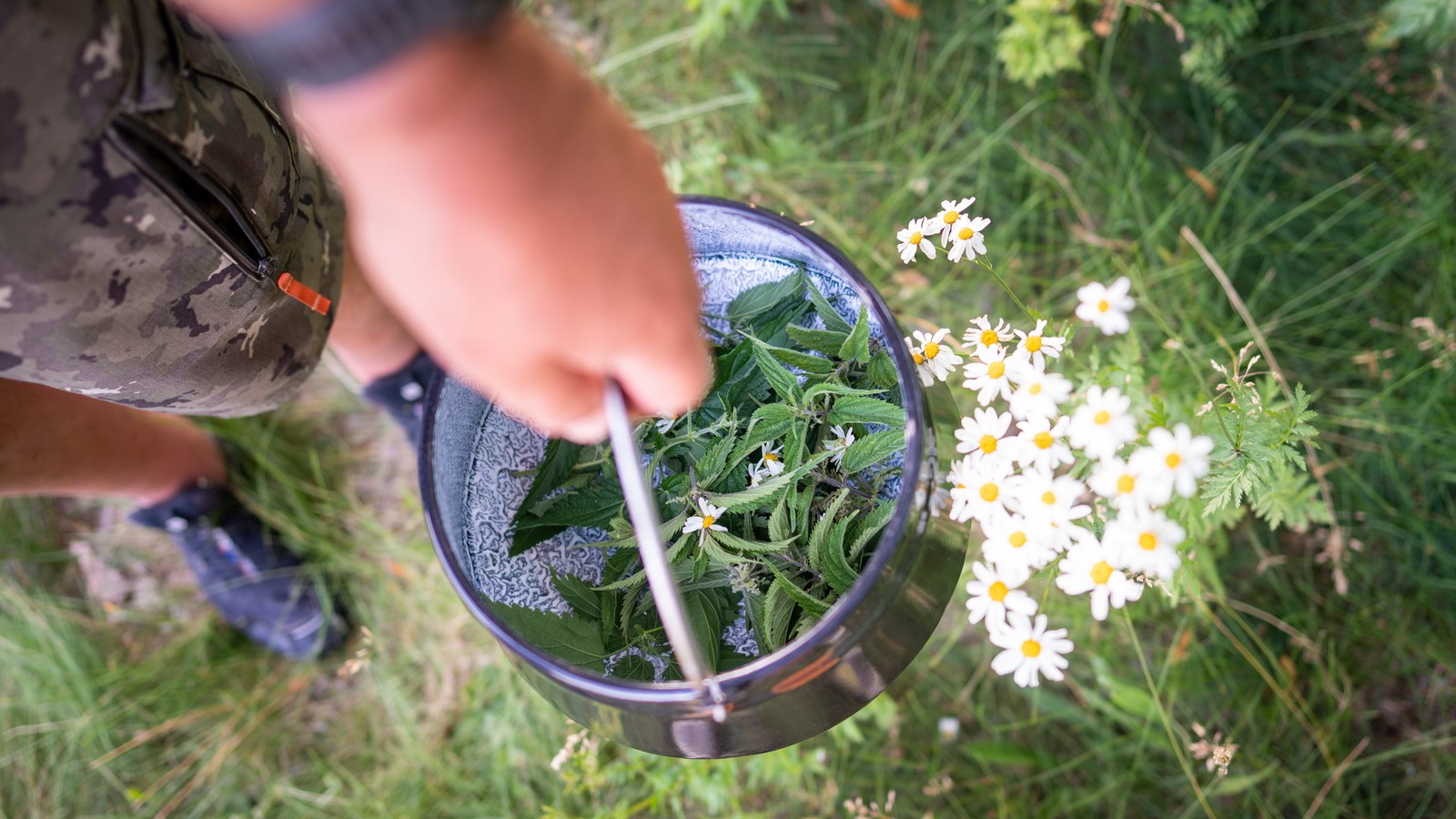
www.hoechsten.de
In a jungle of vines: the untamed vineyard
In Brackenheim, Württemberg’s biggest wine-growing district, in the countryside of Heilbronn, there has been a thriving harvest of flavorful red and white wines for over a thousand years. The landscape is shaped by perfectly regular, perpendicular rows of vines. The wild and untamed allotments of the Wolf winery look like a jungle in comparison. Here the (mostly old) vines are left to proliferate freely, more or less untouched. The only pruning that goes on is down to the sheep, and for them the vineyard is a pasture. But, there’s order in the wild chaos. This liberal method of cultivation stimulates the aromas of the grapes, which go on to produce particularly characterful wines.
Garden weeds in a flask: forest and meadows make trendy lemonades
When temperatures rise in the south of Germany, fresh and fizzy lemonades are the ideal refreshment. The latest soft drinks are green, sparkling and taste like fir, woodruff or dandelion. Wild-picked silver fir and fir sap are the primary ingredients of Black Forest lemonade ‘Tannenliebe’, and every sip feels as though you were standing in the middle of the forest. The ‘master of the forest’ itself lends the lemonade, which is owned by the Tübingen company Erbagold, its distinctively spicy aroma, whereas ‘Stuggi Schorle Dandelion’ gets its sweet and herbal taste from the juice of the roots and leaves of the dandelion itself.
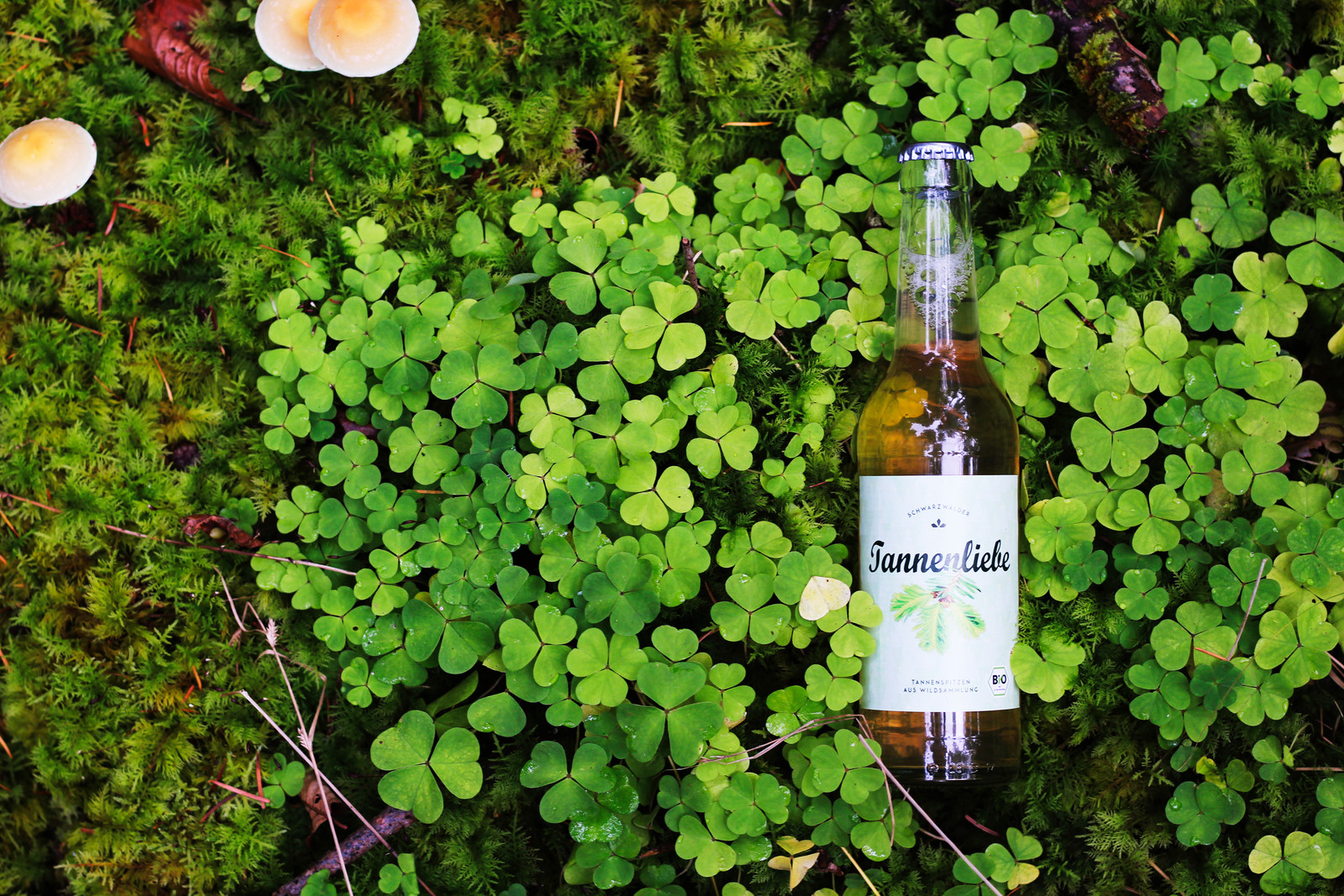
An unconventional barbeque: insect cookery courses in Schwetzingen
Grasshoppers wrapped in bacon, mealworm burgers, or cricket pesto – in many cultures, insects are a time-honored dietary staple. Including creepy-crawlies in your diet prevents food-waste, and their high protein and fibre content mean that here they are seen as a new superfood. Admittedly it might take a little courage and open-mindedness to sign yourself up to this insect cookery course at Barbara Grundler’s culinary school in Schwetzingen. But for those who take the leap, it’s a chance to expand not only your menu but your horizons too.
Wonky veg and juicy fruit: Urban Gardening in Stuttgart
In south Stuttgart, the colorful community garden “El Palito” is like a green island. Here, respect is of the utmost importance. Anyone who can follow that simple rule is welcome, and can muck in with the gardening or simply enjoy the natural scenery of this wild garden paradise. There are more than 20 fruit trees on this sprawling site. One area is a dedicated vegetable patch, whilst further down there are protected habitats for flora and fauna to flourish. As well as El Palito, there are many more urban gardening projects in Stuttgart where visitors are welcome to get involved, such as the hanging garden on ‘Ebene 0’ in Züblin car park, or the urban field on top of Wagenhallen.
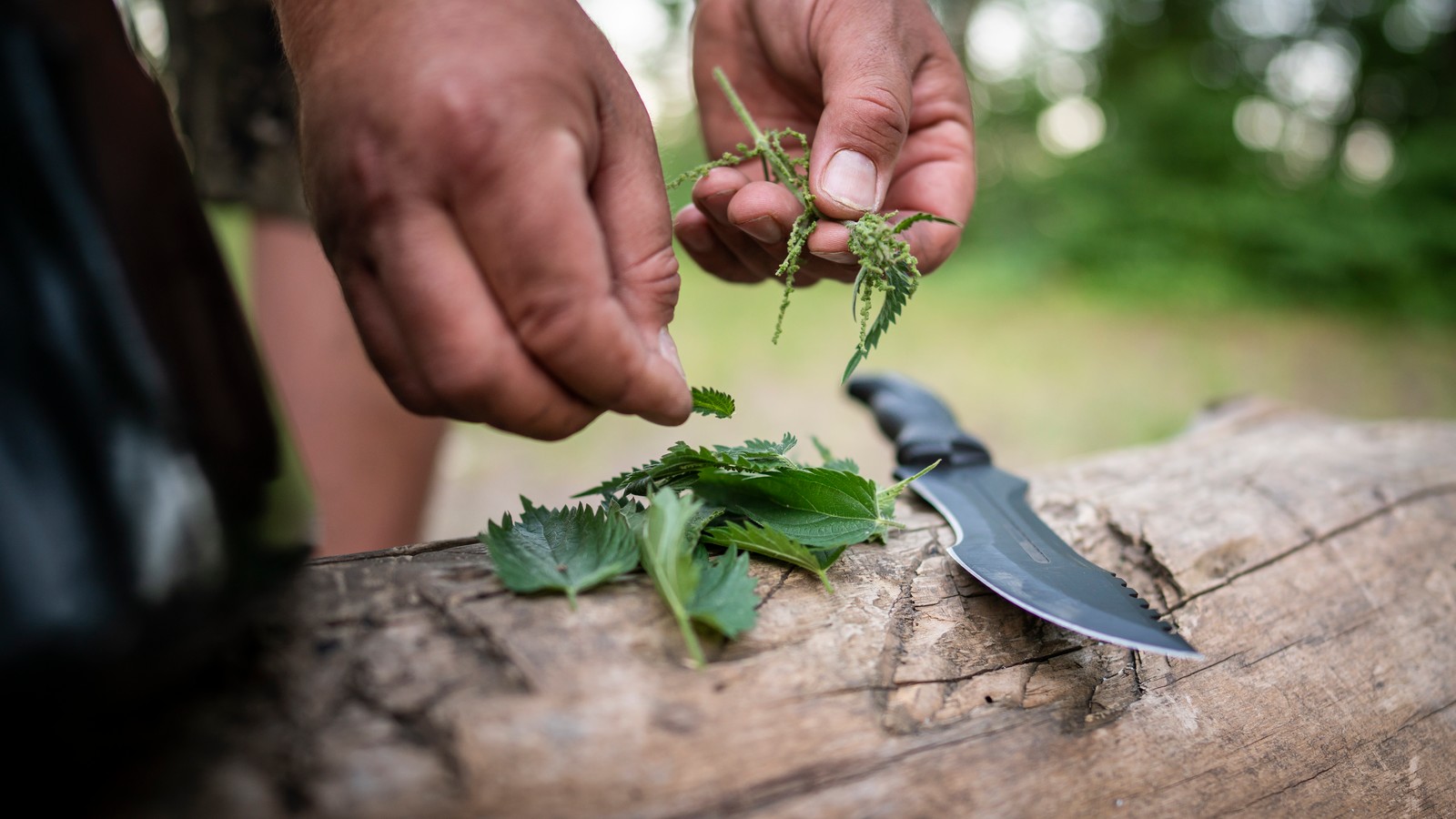
The Albschnecke: otherwise known as the Swabian Alb Snail
The famous Alb Snail might well be on-brand with the ‘Slowfood’ slogan, but this snail, like all other edible snails, enjoys life on the wild side. Rather than living in farmed and cultivated areas, it much prefers shrubs and wildflower gardens as its habitat. Even in ancient times these little creatures were seen as a delicacy and with the spreading of the Roman Empire they found their way to the Swabian mountains, where they soon spread across the chalky terrain. Nowadays they are an endangered species, and can no longer be harvested in the wild. As a result, there are now some ‘snail gardens’ dedicated to the breeding of Alb Snails, such as that of biosphere-ambassador and Alb-guide Rita Goller in Münsingen.
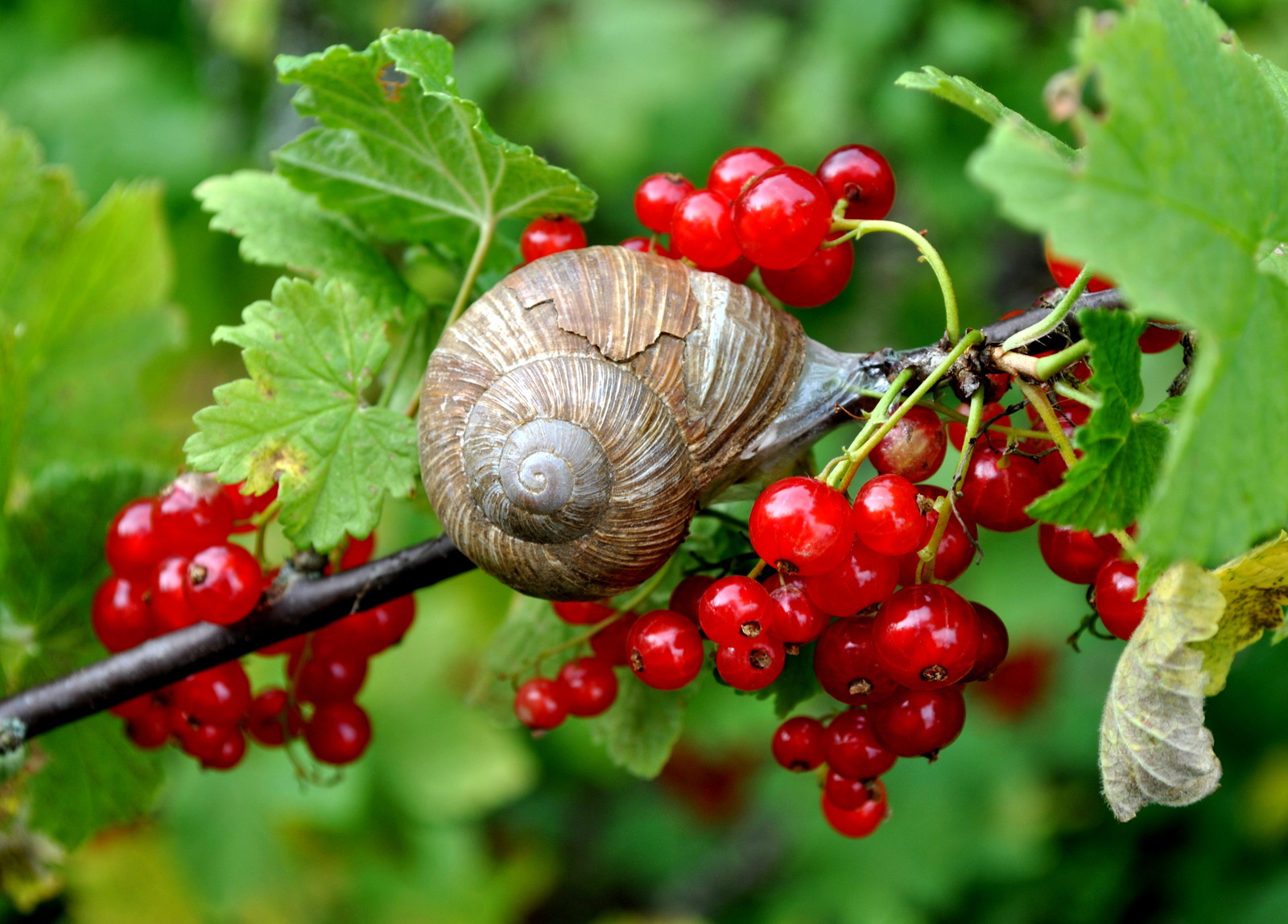
www.albschneckler.de
‘Halali! Horrido!’ – discover the hunting history of this remarkable castle
Like a fairy-tale castle, the ancestral residence of the Swabian-Catholic Hohenzollern family towers over the Danube and dominates the Sigmaringen skyline. The expansive Josefslust woodlands are part of the castle grounds, and have served as a hunting ground for the enthusiastic hunters of this aristocratic family for generations. There are countless hunting trophies to be admired on the castle tour, ‘Game and Wine,’ as well as delightful anecdotes of daily life in the aristocratic home, and the stories behind traditional German hunting calls and salutations. And at the end of the tour you can even have a taste of the game hunted on-site, along with a good drop of wine, in the castle kitchen.
Discover more from SNAP TASTE
Subscribe to get the latest posts sent to your email.



